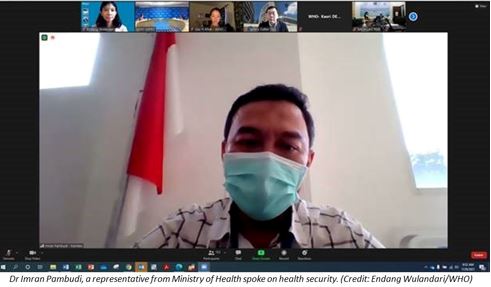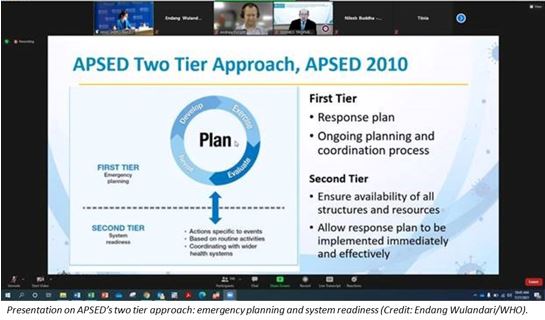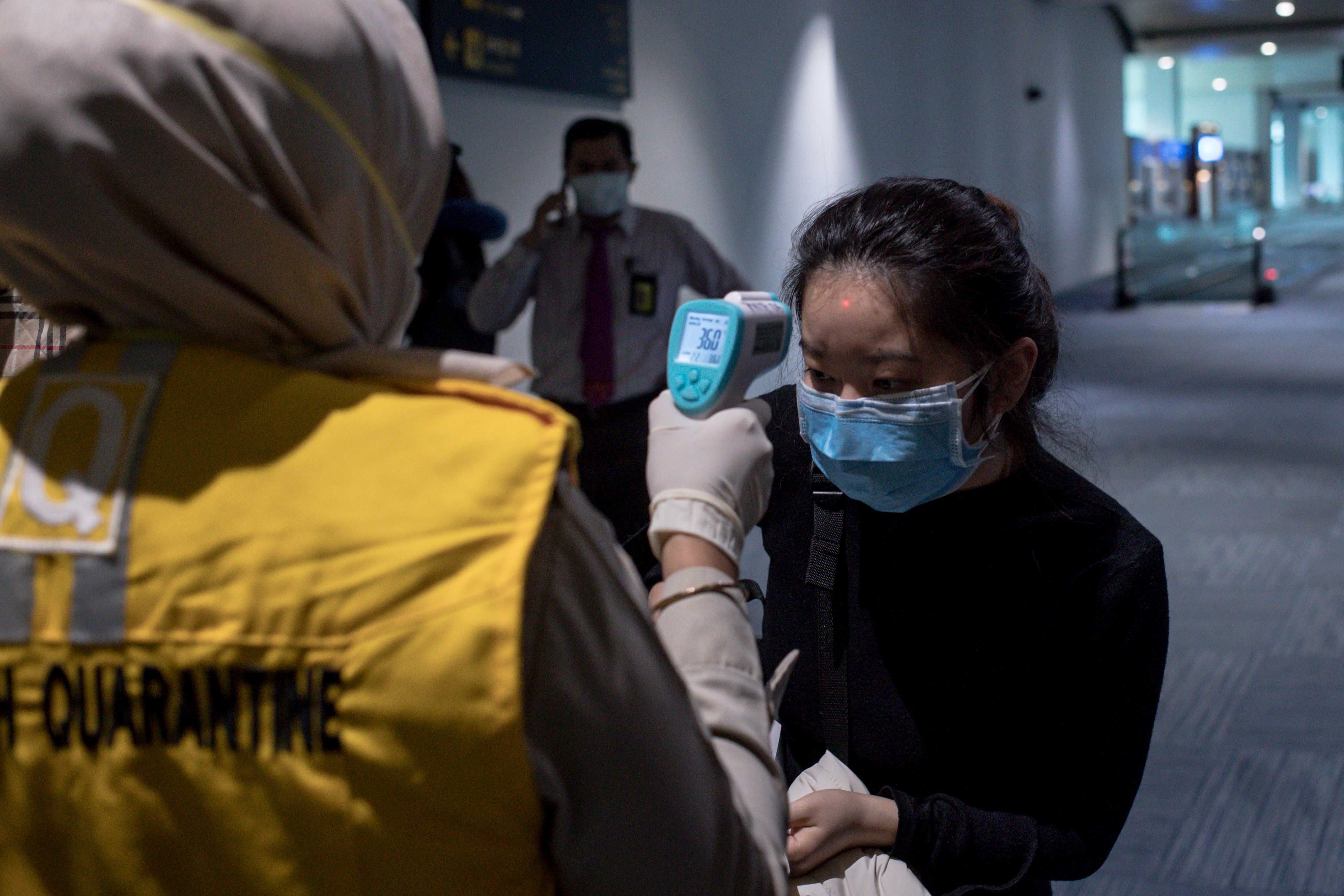Indonesia participated in the meeting of the bi-regional Technical Advisory Group (TAG) of the Asia Pacific Strategy for Emerging Diseases and Public Health Emergencies (APSED) from 27-29 July 2021. Around 190 participants from countries of South East Asia (SEAR) and Western Pacific Regions (WPR) attended the meeting.
The meeting addressed lessons identified through the COVID-19 experiences in the region and reviewed recommendations made in global reviews. The discussions indicated that addressing identified gaps and vulnerabilities would require a whole-society approach; national, regional and global actions; investment and coordination.

Indonesia shared its experience during COVID-19 pandemic response. The implementation of the recommendations of the Intra-Action Review has led to the development and implementation of Health Alert Cards (e-HAC), strengthening use of the information system and data sharing mechanism among Points of Entry and Provincial Health Officers and the improvement of multisectoral coordination.
Indonesia emphasized that there is no health security without resilient health systems. Indonesia conveyed that to strengthen health security framework, continued efforts are needed to:
- Build institutional resilience by maintaining the essential functions of the State including stability, security and the continuity of executive, judicial, legislative and administrative processes.
- Pursue health resilience through the inclusion of efforts to meet significant increases in demand for both public health and healthcare services and adapt to long-term capacity building on epidemiological changes for prevention, detection, response and recovery measures.
- Improve social resilience by addressing vulnerabilities and distributive social effects at different scales of social organization including individual, family and community to reduce vulnerabilities associated with the extensive effects of infectious diseases with pandemic potential; improve community resilient for preparedness and response to pandemic. - Build economic resilience by limiting the magnitude of economic losses, recover quickly and forge new developmental paths for prosperity.
- Strengthen environmental resilience by transforming and balancing the social-ecological interaction through the reduction of disruption of the natural environment caused by negative human actions.
For border measures, Indonesia raised several important points:
- Establish an early warning system to monitor vulnerabilities that may lead to the emergence of infectious diseases.
- Improve information sharing and notification requirements to improve the international response which includes early and transparent communication and consultation with experts.
- Promote and implement travel health framework for safe international and domestic travel.
- Strengthen regional port health network, especially for neighboring countries (e.g., Indonesia, Singapore, Malaysia, Australia and Philippines). Joint port health exercises in medevac of infectious persons or quarantining of infectious ships.
- Improving collaboration on zoonotic diseases especially from land border area.
The overall recommendations from the APSED meeting include:
- To continue to strengthen core public health capacities.
- Countries and areas to monitor and evaluate intervention measures for COVID-19 and adjust resources according to contact at national and sub-national levels.
- To strengthen information systems and response capacities at the sub-national and national levels through evidence-based decision-making with a risk-based approach, laboratory-based surveillance including genomic surveillance, improve healthcare pathways at national and sub national level, contact tracing, risk assessment, apply social and behavioral science for risk communication.
- To strengthen Point of Entry capacities through enhanced quarantine systems, sharing of information and partnership with other sectors.
- To increase vaccine coverage and strengthen effective use of vaccines.
- To prioritize vulnerable groups and at-risk groups.
- To strengthen health security systems towards universal health coverage.
- To expand strategic operational partnerships and networks such as the Global Outbreak Alert and Response Network and enhance public health emergency rapid response and preparedness capacity at global, regional and national levels.
- Continue to engage with partners to address the operational needs in COVID-19 response to enhance public health emergency rapid response and preparedness capacity.

In the meeting, Indonesia highlighted that during the current COVID-19 pandemic there were potential threats that could affect antimicrobial stewardship activities and drive antimicrobial resistance. For instance, many individuals presenting with mild disease without pneumonia or moderate disease with pneumonia have received antibiotics. A review of published studies on hospitalized COVID-19 patients identified that while 72% of patients received antibiotics, only 8% demonstrated superimposed bacterial or fungal co-infections.
The meeting also discussed antimicrobial resistance (AMR) as part of health security. Indonesia shared lessons learned on AMR in Indonesia, such as the use of national guidelines on AMR in health facilities.

Photo by Mas Agung Wilis/NurPhoto via Getty Images
